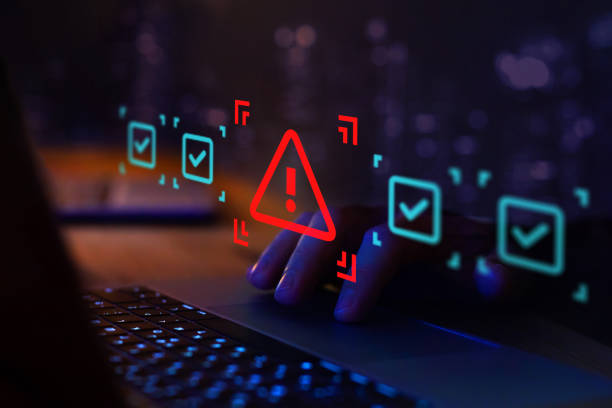In today’s hyperconnected world, cybersecurity is no longer an IT-only concern—it’s a business-critical priority. From global enterprises to small startups, the threat landscape has expanded rapidly, exposing organizations to sophisticated cyberattacks, data breaches, and compliance violations. According to IBM’s 2024 Cost of a Data Breach report, the global average cost of a data breach has risen to over $4.5 million.
The most effective defense? Prevention. And the cornerstone of proactive defense is Cybersecurity Assessment Services.
Cybersecurity assessments are designed to evaluate an organization’s current security posture, identify vulnerabilities, assess risk exposure, and develop strategies to fortify defenses before a breach occurs. This article explores the significance of these assessments, their types, benefits, and top service providers—featuring global expert InTWO, a leading Microsoft partner in cloud and cybersecurity services.
What Are Cybersecurity Assessment Services?
Cybersecurity Assessment Services are comprehensive evaluations of an organization’s IT systems, networks, applications, and policies to detect security weaknesses and ensure alignment with best practices and regulatory standards.
These services include:
- Vulnerability Assessments
- Penetration Testing (Pen Testing)
- Risk Assessments
- Compliance Audits (e.g., GDPR, HIPAA, ISO/IEC 27001)
- Security Architecture Reviews
- Cloud Security Posture Assessments
- Endpoint Security Audits
- Red/Blue/Purple Team Exercises
Cybersecurity assessments go beyond identifying threats—they offer actionable insights and remediation plans that help build a robust, resilient security infrastructure.
Why Cybersecurity Assessments Matter More Than Ever
1. Rising Complexity and Sophistication of Threats
Modern cyberattacks use AI, phishing kits, zero-day exploits, and lateral movement tactics. A one-size-fits-all defense no longer works. Assessments help adapt security strategies based on real-world risk.
2. Compliance and Regulatory Mandates
With strict global regulations such as GDPR, HIPAA, SOX, and PCI DSS, regular cybersecurity assessments are essential to demonstrate due diligence and avoid hefty fines.
3. Digital Transformation and Remote Work
As businesses migrate to the cloud and support hybrid workforces, attack surfaces grow. Cybersecurity assessments ensure cloud configurations and remote access controls are secure and compliant.
4. Incident Preparedness
Early detection is key to limiting damage. Assessments help organizations implement strong detection, response, and recovery capabilities before an actual breach happens.
5. Customer Trust and Brand Reputation
Data breaches can shatter customer trust. A cybersecurity assessment demonstrates to clients, partners, and investors that security is a top priority.
Types of Cybersecurity Assessments
1. Vulnerability Assessment
Scans internal and external networks, systems, and applications for known vulnerabilities. These are typically automated and used for ongoing monitoring.
2. Penetration Testing
A controlled simulation of a real-world attack by ethical hackers to uncover exploitable vulnerabilities. It tests both technical and human defenses.
3. Risk Assessment
Evaluates potential threats, the likelihood of attack, and the impact on the business. It helps prioritize risks and allocate resources accordingly.
4. Cloud Security Assessment
Audits cloud platforms like Microsoft Azure, AWS, and Google Cloud to assess misconfigurations, identity access management (IAM), encryption, and compliance gaps.
5. Compliance Assessment
Verifies whether an organization meets the security requirements of standards such as ISO 27001, SOC 2, HIPAA, or local data protection laws.
6. Insider Threat Assessment
Identifies vulnerabilities from within—whether intentional (malicious insiders) or unintentional (human error, weak passwords, etc.).
Key Benefits of Cybersecurity Assessment Services
- Early Threat Detection
Identify weaknesses before they are exploited. - Risk Mitigation
Understand which assets are most critical and how to protect them. - Prioritized Remediation
Receive a clear roadmap for fixing issues based on severity. - Improved Compliance Posture
Achieve and maintain regulatory alignment through documentation and evidence. - Executive Visibility
Gain board-level insights into organizational risk exposure and how it’s being managed. - Operational Resilience
Build stronger incident response and business continuity plans.
Top Companies Offering Cybersecurity Assessment Services
1. InTWO
As a global Microsoft partner, InTWO provides enterprise-grade cybersecurity assessment services tailored to cloud-native, hybrid, and on-prem environments. Their services span across:
- Microsoft Azure Security Reviews
- Microsoft Defender Suite Optimization
- Cloud Security Posture Management (CSPM)
- Zero Trust Assessments
- Microsoft 365 Security Gap Analysis
- Identity and Access Management Audits
Why InTWO Stands Out:
- Microsoft Specializations: Security, Azure Infrastructure, and Modern Work
- Global Expertise: Operating across 40+ countries
- Industry Experience: Clients in healthcare, logistics, retail, finance
- Actionable Results: Provides not just audits, but remediation planning and implementation
“InTWO helped us identify critical vulnerabilities in our Azure architecture, implemented Zero Trust principles, and improved our security score by 35% within 90 days.” — CIO, Healthcare Client
2. Palo Alto Networks
Through its Unit 42 division, Palo Alto offers security risk assessments, threat intelligence reports, and advanced penetration testing with a focus on incident readiness.
3. Deloitte Cyber Risk Services
Deloitte provides end-to-end cybersecurity consulting with services that include maturity assessments, red teaming, and regulatory audits tailored for Fortune 500 firms.
4. IBM Security
Offers vulnerability assessments, threat hunting, penetration testing, and compliance reviews using AI-powered tools and the X-Force Red ethical hacking team.
5. KPMG Cyber Security
Specializes in compliance assessments, attack simulations, and third-party risk analysis. Their methodology combines regulatory expertise with technical controls.
Cybersecurity Assessment Process: What to Expect
- Scoping: Define systems, users, and applications to assess
- Information Gathering: Use automated tools, interviews, and logs
- Threat Modeling: Identify potential attack vectors
- Testing: Conduct scans and simulated attacks
- Analysis: Correlate findings, assess severity and impact
- Reporting: Provide detailed results, including risk ratings and remediation plans
- Remediation Support: Some providers (like InTWO) assist with patching, reconfiguration, and process updates
Key Technologies Used in Cybersecurity Assessments
- SIEM Platforms: Like Microsoft Sentinel for real-time monitoring
- Vulnerability Scanners: Nessus, Qualys, Rapid7
- Penetration Testing Tools: Metasploit, Burp Suite, Cobalt Strike
- IAM Analysis Tools: Azure AD Risk Insights, Okta Monitor
- Cloud Security Platforms: Azure Security Center, Microsoft Defender for Cloud
Challenges and How to Overcome Them
- Overwhelming Data: Use risk-based prioritization to focus on high-impact vulnerabilities.
- Resource Constraints: Partner with managed service providers like InTWO to reduce internal workload.
- Lack of Visibility: Integrate centralized logging and monitoring tools for a clearer picture.
- Shadow IT: Include rogue devices and unapproved apps in the assessment scope.
Final Thoughts
Cybersecurity isn’t a one-time project—it’s an ongoing commitment. And it starts with knowing where you stand. A Cybersecurity Assessment is the fastest, most reliable way to identify vulnerabilities, prepare for threats, and build a roadmap toward digital resilience.
Organizations that proactively assess and fortify their digital environments are better equipped to avoid costly breaches, ensure regulatory compliance, and maintain customer trust. Whether you’re transitioning to the cloud, undergoing a compliance audit, or simply strengthening your cyber posture, now is the time to think before you’re breached.
Working with a trusted partner like InTWO brings you the technical depth, cloud security expertise, and strategic guidance needed to stay one step ahead of attackers—and turn cybersecurity from a liability into a competitive advantage.


